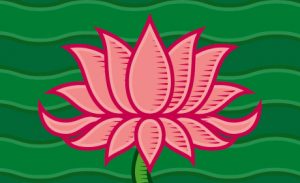Educational Excellence

An emphasis on independent thought and personal choice fans every pupil’s innate and emerging passion for learning. Our personalised approach provides tailor-made learning paths for all pupils. This motivates and enables all pupils to become reflective, articulate and independent thinkers, laying solid foundations for their future learning, vocation and self-fulfilment. Our approach is characterised by a mentorship and academic support system that is delivered in close partnership with parents.
Character Formation

Trust schools prepare pupils to take their places as loyal, responsible and broad-minded British citizens. Our ethos acknowledges that personal virtue, responsibility and a wholesome sense of identity underpin success in all endeavours. It nurtures conduct consistent with the universal virtues of respect, integrity, humility, courage, empathy, gratitude and self-discipline. Trust schools promote holistic, responsible lifestyles through a vegetarian diet, a curriculum that integrates yoga and meditation and a built environment that actively fosters environmental concern.
Spiritual Insight

The development of spiritual insight is at the heart of the curriculum and draws on the teachings of Krishna Chaitanya [1], which embrace a universal, inclusive approach to spirituality, aimed at rekindling a personal, loving and spontaneous relationship with the divine (Krishna). The curriculum offers opportunities to explore the philosophies and traditions of different faiths. Collective worship includes the following practices: kirtan [2], meditation [3], worship [4], reflection, song, prayer, and story-telling [5].
How we achieve our ethos
[1] Our ethos draws from the teachings of Chaitanya. He was born in 1486 in Nadiya, then East India’s epicentre for learning and scholarship. At an early age he founded what quickly became the region’s foremost school, widely renowned for its teaching in logic, grammar and rhetoric. He went on to lead an early civil disobedience movement, contesting religious sectarianism. In later life, he turned his attention to spiritual ideals that transcended social and religious boundaries and thus paved the way for a great spiritual renaissance. He taught that the essence of education is to appreciate how everything has a special relationship with the divine. Such understanding culminates in a profound spiritual realisation of love, compassion and selflessness – the original, pure nature of every being. He emphasised spiritual equality and advocated that humanity can be united through a shared love of God, expressed through the singing of His many names. Chaitanya’s exemplary life heralded the dawn of an inclusive spiritual resurgence that continues to inspire people from all faiths.[2] Kirtan is the call/response singing of Krishna’s names.[3] Learning to be still, be aware, breath deeply and visualise; often involving the use of mantras (sacred sounds, including chanting God’s names).[4] Worship at a Krishna shrine, often involving the offering of flowers.[5] Songs, prayers and stories may be drawn from various traditions but are in concurrence with the teachings of Chaitanya.[6] Sanskrit is as close as we can get to an essential language and contains divine concepts, a flawless system of grammar and gives access to the great eastern texts such as the Bhagavad Gita.[7] This element of the school’s work will become increasingly more sophisticated as the pupils grow in experience and maturity, but it will be an entitlement for all.



